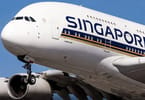The continuing fillip to consumer power, reduction in technology costs and easing of entry barriers are some of the global trends paving the way for new business models including ones in online travel distribution.
China is no different when it comes such trends. In the wake of major events such as the Beijing Olympics 2008 and World Trade Expo in 2010, among others, it is widely acknowledged that such events will further boost the mentioned trends and propel the online travel distribution to a new high.
However, providing an insight into the current status, Roy Graff, director of Business Development, Sportsworld feels last year everyone was optimistic, but the reality is that the Olympics and other events in 2008 have served to constrict the growth in tourism flows to and from China and, therefore, in the profits to companies engaged in the Chinese tourism industry.
“This then has a negative effect on new investment. So I do not see these events contributing to a growth in online distribution,” said Graff, who is scheduled to speak during EyeforTravel’s Travel Distribution and Sales China 2008 conference scheduled for September in Beijing.
Assessing the current status of travel distribution in China, especially online travel, and how is it expected to shape up in future, Graff says China is different in terms of online adoption.
“Consumers are much more reluctant to pay directly online. It is also a restricted market, protecting local companies, and this restricts the introduction of foreign advanced technologies or innovative foreign disruptive technology. In the next few years, the business2business environment will be firmly engaged in online distribution and procurement of product. The most significant change will be in the way hotel products in China are distributed,” continued Graff.
As in the past, post an event of Summer Olympics stature, the host nations have witnessed a major boost to their inbound tourism. Commenting on the possibility on strategic alliances, be it in the GDS sector or online travel sector, Graff said the anticipated boost has not happened and will not happen so fast because the Chinese government is more concerned with political stability and security than with growing tourism faster.
“The trouble that some travel companies and hotels find themselves in, due to the slowdown, will drive consolidation and alliances in the months to come, which will have an impact on the sector,” he said.
From a suppliers’ perspective, he said, “Hopefully hotels will learn from the experience of the Olympics not to rely on large-scale events and inflated rates, but to follow a path of smart distribution strategy through multiple channels and multiple markets. More OTAs and online consolidators are entering as enabling technology becomes more accessible and cheaper for Chinese hotels.”
Recently, Travelport GDS signed a new agreement with TravelSky, the only GDS licensed in China to make reservations for Chinese domiciled airlines. Under the terms of the agreement, TravelSky will implement Travelport’s Reservation Sales Solution (RSS) allowing its travel agents to seamlessly access, make reservations and issue e-tickets on a wide range of global airlines in real-time via Travelport’s Galileo GDS.
On GDS business, he said, “The GDS market will have to be regulated, although I do not believe the government will relinquish complete control. More likely they will announce further alliances with major international GDS to provide new technology and further inventory for TravelSky, the Chinese monopoly GDS. More airline consolidation is also expected in China as airlines lose money on rising fuel costs.”
Finally, sharing his viewpoint on any major immediate changes in the travel distribution post 2008 Olympics, Graff said the industry will be licking its Olympic wounds as most companies would have lost money – airlines, hotels, tour operators etc.
“I think we will see mergers and acquisitions happening early in 2009. I also believe that the Chinese government will announce further relaxation of protective regulation in the sector to boost the industry post-Olympics,” he said.
کنفرانس توزیع و فروش سفر EyeforTravel در چین 2008
Roy Graff, Director of Business Development, Sportsworld is scheduled to speak during EyeforTravel’s Travel Distribution and Sales China 2008 Conference in Beijing on September 24-45. For information, click here: http://events.eyefortravel.com/tdchina/agenda.asp
یا تماس بگیرید: Reece Gladstone at [ایمیل محافظت شده], Tel: +44 207 375 7158
چه چیزی را از این مقاله باید حذف کرد:
- However, providing an insight into the current status, Roy Graff, director of Business Development, Sportsworld feels last year everyone was optimistic, but the reality is that the Olympics and other events in 2008 have served to constrict the growth in tourism flows to and from China and, therefore, in the profits to companies engaged in the Chinese tourism industry.
- In the wake of major events such as the Beijing Olympics 2008 and World Trade Expo in 2010, among others, it is widely acknowledged that such events will further boost the mentioned trends and propel the online travel distribution to a new high.
- Commenting on the possibility on strategic alliances, be it in the GDS sector or online travel sector, Graff said the anticipated boost has not happened and will not happen so fast because the Chinese government is more concerned with political stability and security than with growing tourism faster.






















